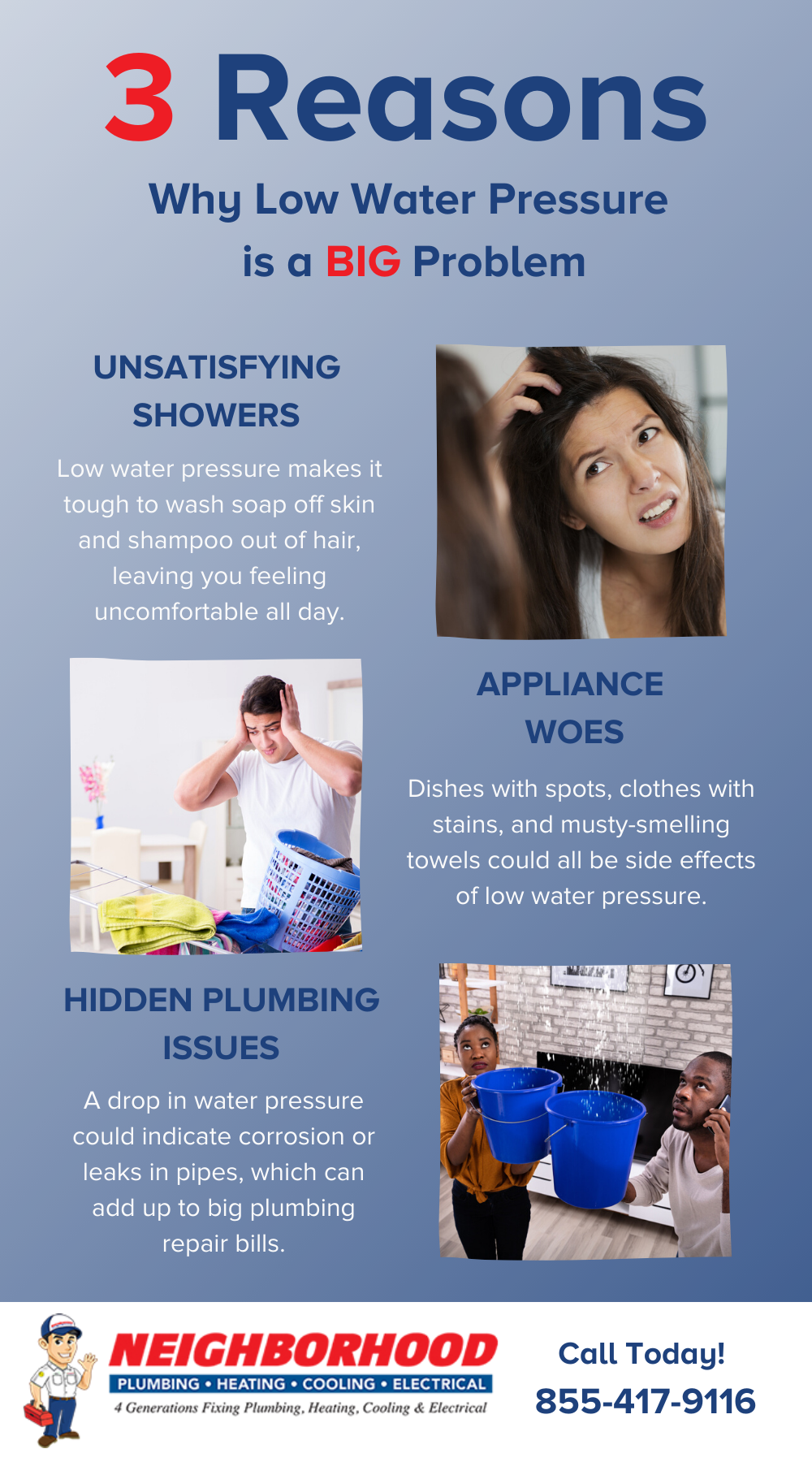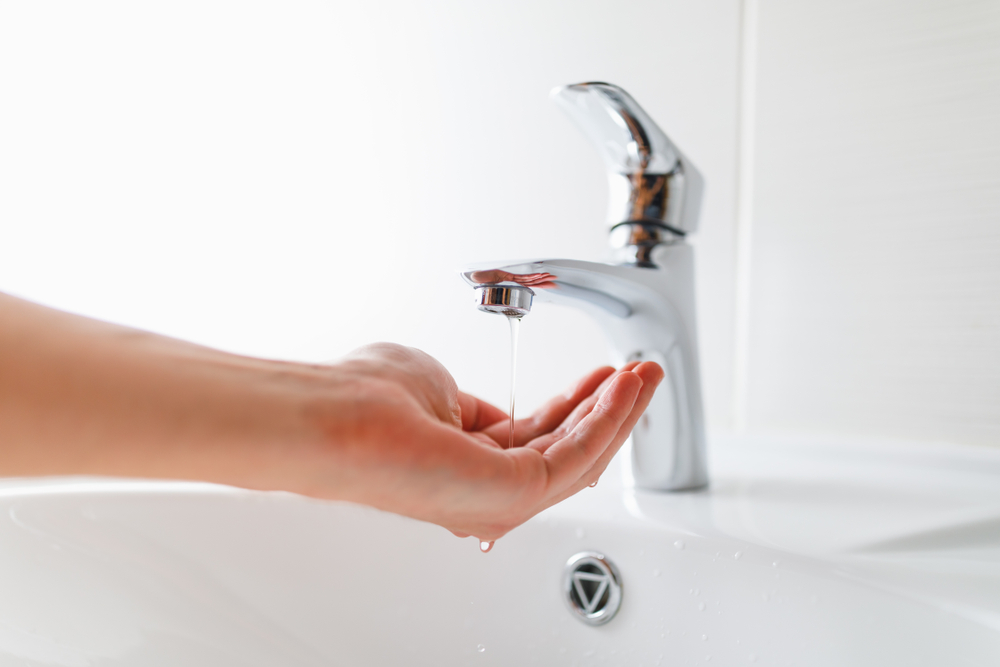You’re an extremely busy person with plenty of responsibilities on your plate. Making a living and tending to family drains a lot of your energy, and when you get home or finally make it to the weekend, the last thing you want to deal with is a finicky plumbing system.
If you’re experiencing issues with low water pressure, you might be tempted to brush them off, or “grin and bear” them. You might assume this is just one of those little annoyances in life that you have to learn to accept.
Your friends at Neighborhood are here to tell you, that’s not the case! You don’t have to live with subpar water pressure, and in fact, ignoring a sudden change in your water flow could create even more trouble for you over time. Check out this infographic to see why:

So, what causes low water pressure, and is it really necessary to take the time to call a professional plumber for help? We break it down below.
It could be clogged fixtures
When faucets and shower heads get clogged with mineral scale from hard water, soap scum, or rust, they simply aren’t able to deliver the same strong stream of water you’re accustomed to. If you’re handy with a wrench, you can easily fix this problem by cleaning out your fixtures or replacing them.
It could be the valves
The flow of water to your home is controlled by two valves: the one that’s connected to the main municipal supply line and is mostly manipulated by the water company, and the one that’s attached to—and probably located inside—your house. If either of these valves are partially closed, it will restrict the water delivery to your plumbing system, resulting in low water pressure.
It’s possible to remedy the latter situation yourself, but for the former, you should call a plumber or the local water company.
It could be the pressure regulator
Many homes are equipped with a water pressure regulator device that regulates the level of water pressure in your system. It’s easy to see why this is important; you don’t want the pressure so high it hurts when it hits your skin or it bursts pipes, and you don’t want the pressure so low that you can’t get your clothes or dishes—or your body—clean.
While you could tinker with the regulator or replace it yourself, we recommend seeking help from a professional who has experience executing these tasks correctly and safely.
It could be old pipes
If you have metal pipes, they are susceptible to rust and corrosion over time. Everything from the pH (acidity level) of the water, high oxygen levels in the water, and too much water pressure can cause corrosion, even in pipes that aren’t that old. Corrosion results in a build-up of particles in the pipes that can block water flow and reduce water pressure in your home.
Not only will you have to call a professional to assess the level of corrosion in your pipes, but you’ll be happy to have their services at your disposal if you have to re-pipe a small section of the system or your entire home.
It could be tree roots
Underground pipes and the strong, moisture-seeking roots of trees can be a dangerous combination. In their search for water, roots can find their way into the smallest cracks in pipes and plug up the entire operation. Left unattended over time, tree roots in pipes can cause much worse problems than low-flow showers—they can break the entire pipe.
Any of these plumbing issues could trigger the need for major repairs if you don’t address them right away. As annoying as low water pressure is, imagine how it would feel to be left with a plumbing emergency in the middle of a Minnesota winter!
Call us for a thorough plumbing inspection, and our St. Cloud, MN, area experts will make sure that doesn’t happen. We’ll use our decades of experience to effectively troubleshoot your low water pressure issues and remedy them so you can get back to showering, doing laundry—everything you do every day, minus the extra aggravation! Contact us today to schedule your appointment!



